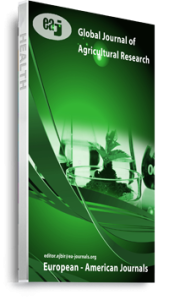Urban gardening (UG) serves to increase the production and consumption of fresh produce in urban and semi-urban areas. A project was implemented in 2022 to enhance the technical, allocative, and economic efficiency of small, socially disadvantaged minority farmers engaged in UG. Data were collected from 22 of the project’s participating producers. The findings revealed that farmers operated rationally, and cultivated diversified specialty and ethnic crops and medicinal herbs, with an average of 20 crops on 1.2 acres. As rational producers, based on data-driven evidence, farmers practiced integrated alley and mixed cropping systems (crops such as leafy, root, climbers, cash, herbs, and fruits), adopted a rainwater harvesting technique, expanded compost-making, maintained high cropping diversity, and introduced a tier system of production to mitigate production, marketing, and financial risks. Besides the socio-economic and health benefits, an increase in the production of vegetables locally will eventually help to lower the carbon footprint.
Keywords: community economic development, data-driven farm planning, extension education, minority producers, risk diversification

